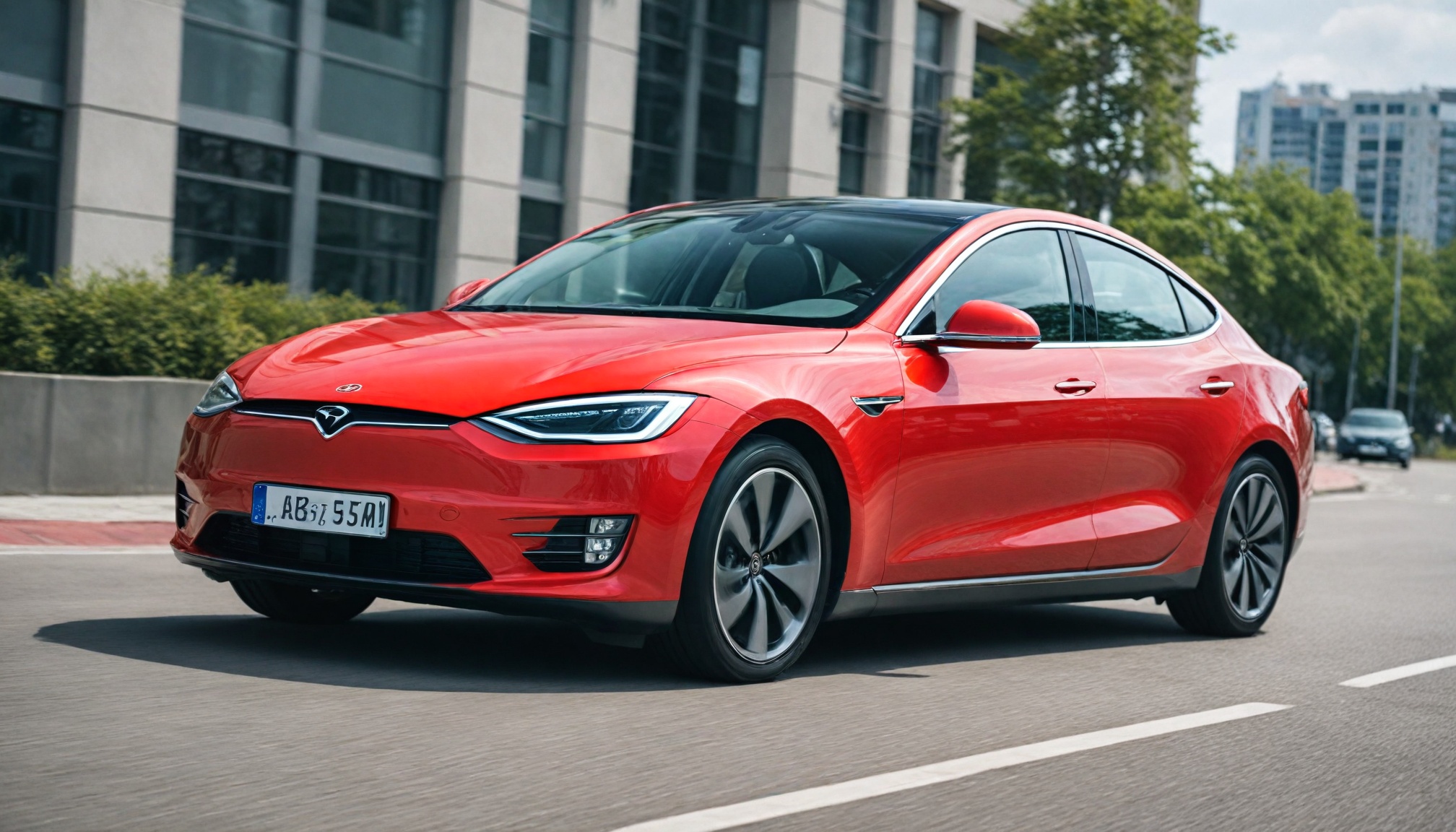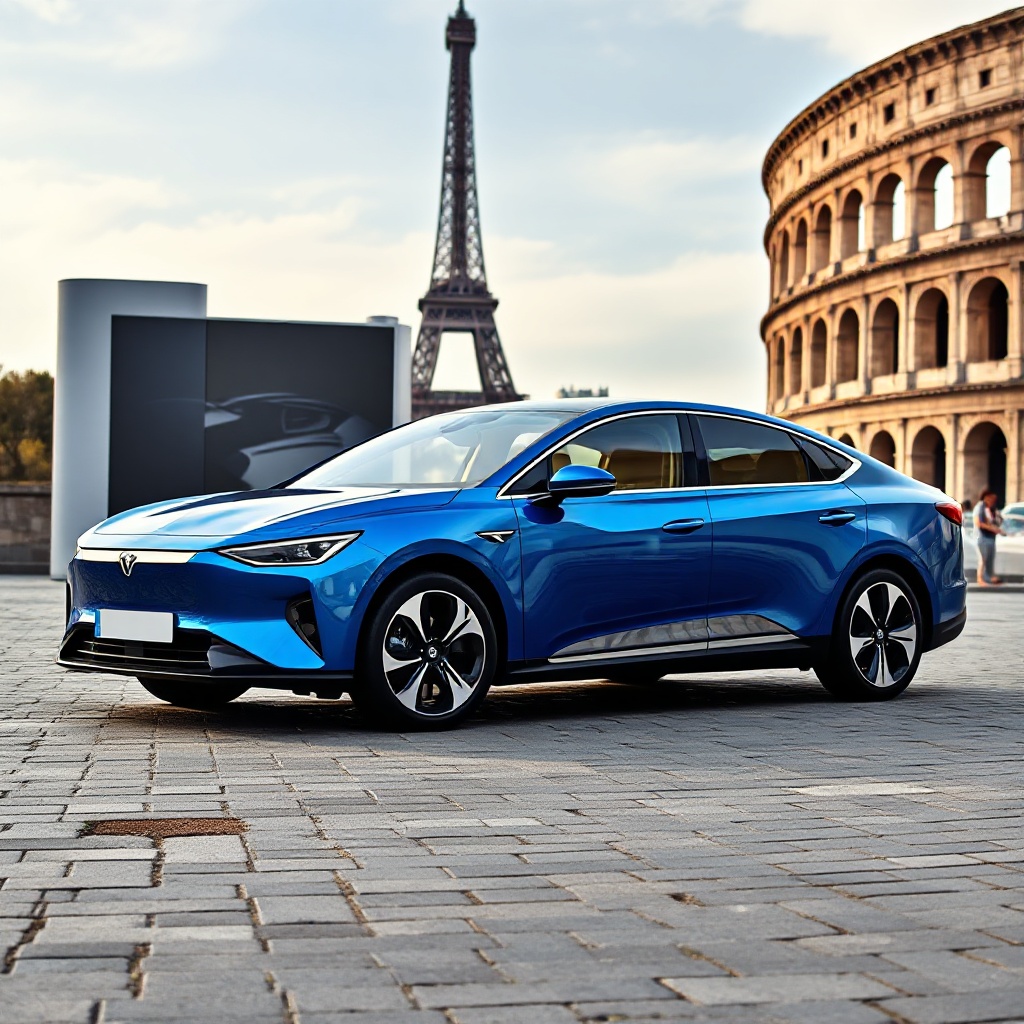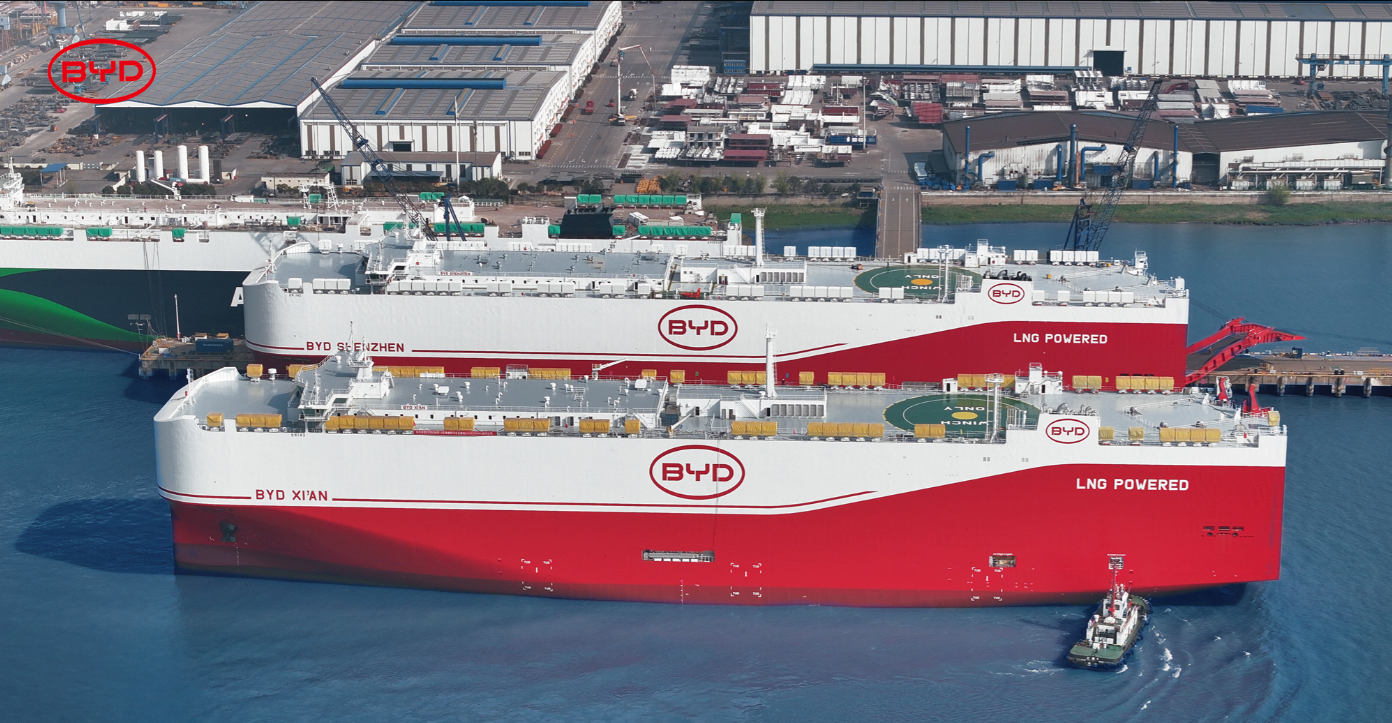
Chinese EV giant BYD surpasses Tesla in European sales for the first time, marking a historic shift despite EU tariffs, with 359% growth vs Tesla's 49% decline.

Drivetech Partners
The European electric vehicle market has experienced a historic shift as Chinese manufacturer BYD surpassed Tesla in sales for the first time in April 2025, registering 7,231 fully electric cars compared to Tesla's 7,165 while achieving a remarkable 359% year-on-year growth against Tesla's 49% decline. This watershed moment represents not just a temporary change in leadership but signals a fundamental transformation in the competitive landscape of Europe's automotive industry, with profound implications for traditional European manufacturers.
Key Takeaways
BYD achieved 359% year-on-year growth in European EV sales while Tesla experienced a 49% decline
Despite EU tariffs on Chinese EVs, BYD circumvented restrictions by focusing on plug-in hybrid vehicles not subject to these tariffs
BYD has already outsold established European brands like Fiat, Dacia, and Seat in several key markets
The company's vertical integration and manufacturing efficiency provide significant competitive advantages
BYD is preparing to open a Hungarian production facility which will further reduce exposure to tariffs
BYD Dethrones Tesla: A Historic Shift in Europe's EV Market
April 2025 marked a pivotal moment in the European automotive industry when Chinese manufacturer BYD registered 7,231 fully electric vehicles, narrowly surpassing Tesla's 7,165 units. This represents the first time a Chinese brand has led the European EV market for a single month. The significance of this achievement is underscored by BYD's extraordinary 359% year-on-year growth, particularly when contrasted with Tesla's 49% decline during the same period.
What makes this milestone even more remarkable is that it occurred despite European Union tariffs specifically targeting Chinese-made electric vehicles. The tariffs, implemented as a protective measure for European manufacturers, were designed to slow the influx of Chinese EVs into the market. However, BYD's strategic approach to the European market has allowed it to overcome these regulatory hurdles with surprising effectiveness.

Strategic Circumvention of EU Tariffs
BYD's success in Europe can be attributed to its strategic product diversification. Rather than relying solely on battery electric vehicles (BEVs) that would be subject to EU tariffs, BYD expanded its European lineup with plug-in hybrid electric vehicles (PHEVs) that fall outside the scope of these restrictions. This move proved enormously successful, with PHEVs seeing a staggering 546% year-on-year increase, rising from 1,493 units in April 2024 to 9,649 in April 2025.
The combined sales of BEVs and PHEVs have given BYD significant market penetration despite the regulatory challenges. Moreover, BYD's aggressive pricing strategy in Europe, coupled with higher markups compared to its domestic market, has contributed to greater profitability. This approach has allowed BYD to establish a strong foothold in Europe while maintaining healthy margins, creating a sustainable growth model that can weather regulatory pressures.
BYD's Rapid European Expansion
Since late 2022, BYD has expanded rapidly beyond its initial European markets of Norway and the Netherlands. The company now has a substantial presence in major markets including the UK, France, Italy, and Spain. This expansion has been swift and effective, with BYD already outselling established European brands like Fiat, Dacia, and Seat in several key markets.
What's particularly notable about BYD's European success is that it has occurred before the company's new Hungarian production plant becomes operational. This facility, currently under construction, will reduce BYD's exposure to EU tariffs and streamline its supply chains within Europe. Once operational, the plant is expected to further enhance BYD's competitive position by reducing logistical costs and delivery times while providing a "Made in Europe" credential that may resonate with European consumers.
Shifting EV Market Landscape in Europe
The broader European automotive market is undergoing a significant transformation, with electric vehicle adoption accelerating rapidly. In April 2025, BEV registrations grew by 28% and PHEV registrations by 31%, while total new car registrations remained stable year-on-year. BEVs now make up 17% of new registrations (up from 13.4% the previous year), and PHEVs account for 9% (up from 6.9%).
Chinese car brands, led by BYD, now represent almost 10% of total PHEV registrations in Europe, a remarkable achievement given their relatively recent entry into the market. This changing landscape presents both challenges and opportunities for traditional European manufacturers, who must now compete with Chinese brands that offer competitive pricing, advanced technology, and increasingly appealing designs.
BYD's Competitive Advantages
Several factors contribute to BYD's growing success in Europe. Chief among these is the company's vertical integration strategy. Unlike many automakers that rely heavily on suppliers for key components, BYD produces many critical parts in-house, including batteries, motors, and electronic systems. This approach gives BYD greater control over its supply chain, costs, and quality, while enabling more rapid innovation cycles.
BYD's broad product lineup also contributes to its competitiveness in Europe. The company offers a diverse range of vehicles spanning multiple segments, from compact cars to SUVs and luxury sedans. This diversity allows BYD to address different consumer needs and preferences across various European markets.
Another key advantage is BYD's ability to rapidly adapt to new markets and regulatory environments. The company has demonstrated remarkable strategic agility in navigating Europe's complex regulatory landscape, quickly pivoting to emphasize PHEVs when faced with tariffs on BEVs. Additionally, BYD's focus on both BEVs and PHEVs provides market flexibility not shared by Tesla, which remains committed exclusively to fully electric vehicles.
Global Implications of BYD's Rise
BYD's European breakthrough is part of a broader global ascendancy. In 2024, BYD surpassed Tesla in global vehicle production for the first time, producing 1,777,965 vehicles compared to Tesla's 1,774,442. The company also reported $107 billion in revenue for 2024, outpacing Tesla's $97.7 billion for the first time and highlighting the scale of its global ambitions.
Chinese EV exports to Europe have grown sharply in recent years, raising Chinese brands' share of total EU car sales from 0.4% in 2019 to a projected 15% by 2025. This rapid growth reflects not only competitive pricing but also significant improvements in technology, quality, and design from Chinese manufacturers.
The ongoing rivalry between Tesla and BYD is becoming a defining force in global automotive competition, promising more innovation, lower prices, and faster EV adoption globally. Both companies are likely to intensify efforts in technology development and market expansion, with the EV market leadership position potentially continuing to fluctuate as both pursue aggressive growth strategies.
Challenges for Traditional Automotive Powers
The rise of BYD signals a competitive shake-up for legacy European, Japanese, and American automakers. Traditional manufacturers now face increased pressure to accelerate their EV transition or risk losing significant market share. European automakers in particular must now compete with BYD's cost advantages and rapid innovation cycle, requiring them to rethink their strategies and potentially accelerate their own electrification plans.
The competitive landscape of Europe's EV market is undergoing a fundamental realignment with profound implications for traditional automotive powers. This shift challenges the conventional wisdom that European brands would maintain their dominance in their home market during the transition to electric mobility. Instead, we're seeing the emergence of new leaders from China, with BYD at the forefront of this change.
Traditional manufacturers must now address not only the technological challenges of electrification but also the competitive challenge posed by new entrants with different business models and cost structures. This dual challenge will require innovative responses and potentially painful adjustments to longstanding business practices.
Future of the BYD-Tesla Rivalry
The ongoing rivalry between Tesla and BYD is likely to intensify in the coming years, driving innovation and price competition across the industry. Both companies bring different strengths to this competition: Tesla with its brand cachet, software expertise, and Supercharger network; BYD with its vertical integration, manufacturing efficiency, and product diversity.
This competition promises to benefit consumers through more rapid innovation, improved products, and potentially lower prices. It may also accelerate the broader transition to electric mobility by making EVs more accessible and appealing to mainstream consumers.
The EV market leadership position may continue to fluctuate as both companies pursue aggressive growth and innovation strategies. However, what's clear is that the future of the automotive industry will be shaped in significant part by the strategic decisions and competitive dynamics between these two EV giants.
Sources
Finimize - BYD overtakes Tesla in Europe's electric car race
Autotrade.ie - BYD outsells Tesla in Europe for the first time
JATO - BYD outsells Tesla in Europe for the first time as registrations surge in April



